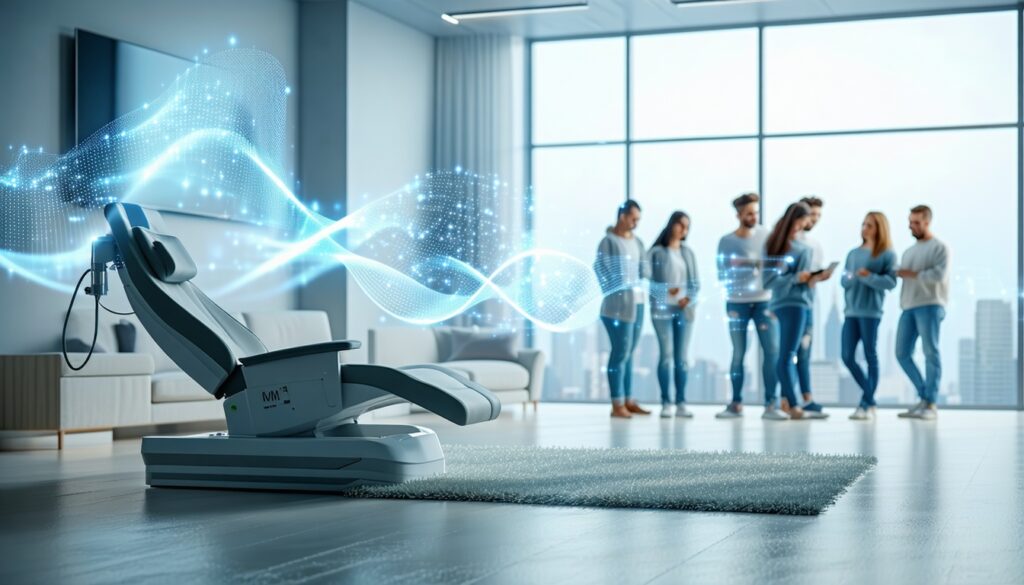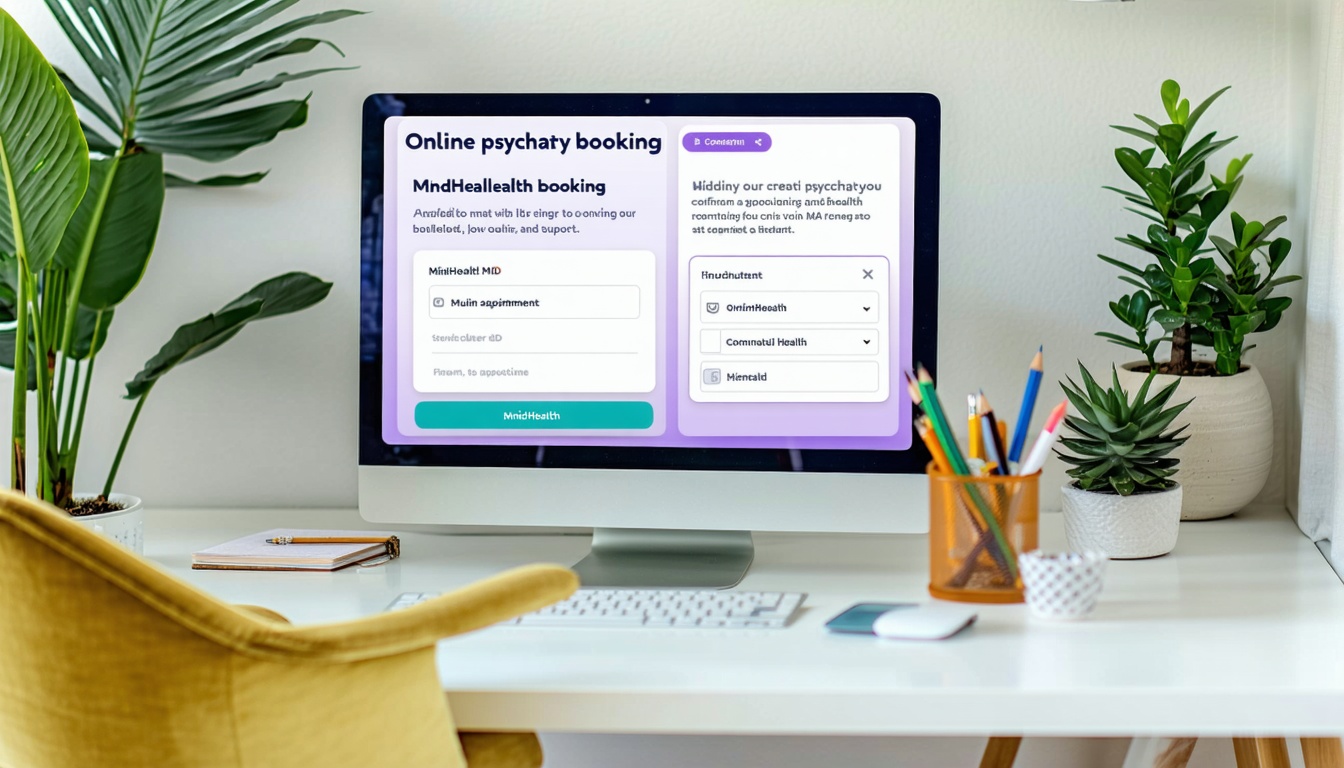Understanding Depression Treatment Options
Overview of Depression Treatments
Depression is a complex mental health condition that can be challenging to treat. While traditional therapies such as psychotherapy and medications like selective serotonin reuptake inhibitors (SSRIs) are often effective for many individuals, they do not work for everyone. For those who do not respond to these treatments, it is important to consider non-invasive depression treatments that can provide relief.
Several options exist beyond typical medications, including alternative therapies like herbal supplements and acupuncture. Many individuals find these methods helpful when conventional treatments fall short. It is essential to work with a healthcare provider to determine the most appropriate approach for your unique situation.
| Depression Treatment | Description | Effectiveness |
|---|---|---|
| Psychotherapy | Talk therapy that helps individuals understand and manage their emotions | Generally effective for many individuals |
| SSRIs | Medications that increase serotonin levels in the brain | Effective for a large percentage, but not all |
| Alternative Therapies | Includes herbal supplements and acupuncture | Varied effectiveness; more research needed |
Importance of Seeking Alternative Therapies
Alternative therapies can play a crucial role for those who find that traditional methods fail to provide adequate relief from their symptoms. As highlighted by the Cleveland Clinic, many patients seek additional options when psychotherapy and medication are not effective. Consulting with a healthcare professional is vital, as they can assist in identifying safe and suitable therapies tailored to your needs.
It is particularly important to discuss any alternative therapies you are considering with your doctor, especially if you are pregnant, breastfeeding, or taking other medications. Some alternatives may present risks or interact negatively with existing treatments. Your healthcare provider can guide you through safe choices and help manage your depression effectively with a comprehensive approach that may combine both traditional and alternative strategies.
Exploring options such as transcranial magnetic stimulation therapy offers another layer of treatment for those seeking non-invasive methods. By understanding the full spectrum of available therapies, you can better navigate the path towards improved mental health.
Non-Invasive Therapies for Depression
When exploring options for non-invasive depression treatment, two prominent therapies are Electroconvulsive Therapy (ECT) and Repetitive Transcranial Magnetic Stimulation (rTMS). These approaches have shown effectiveness in treating various forms of depression without the invasive procedures often associated with other treatments.
Exploring Electroconvulsive Therapy (ECT)
Electroconvulsive Therapy (ECT) is a non-invasive procedure used to treat severe mental disorders by delivering small electrical currents to the brain, inducing brief seizure activity. This therapy is primarily used for individuals experiencing severe depressive episodes who have not responded well to other treatments. The FDA has approved ECT for treating severe depression and bipolar disorder in individuals aged 13 and older [1].
Key Points about ECT:
| Feature | Detail |
|---|---|
| Type | Non-invasive brain stimulation |
| Indications | Severe depression, bipolar disorder |
| FDA Approval | Approved for ages 13 and older |
| Treatment Frequency | Typically administered 2-3 times a week |
The use of ECT has been shown to provide relief for those who suffer from treatment-resistant depression. It is important to consult with a qualified mental health professional to determine if ECT may be a suitable option for you or a loved one.
Benefits of Repetitive Transcranial Magnetic Stimulation (rTMS)
Repetitive Transcranial Magnetic Stimulation (rTMS) is another non-invasive treatment for depression, particularly effective for those who have not found relief through traditional antidepressants. Since the FDA cleared the first rTMS device in 2008, it has gained recognition as a viable treatment for individuals experiencing treatment-resistant depression as well as conditions like OCD, migraines, and anxiety with depression [1].
Advantages of rTMS:
| Feature | Detail |
|---|---|
| Non-invasive | No surgery or anesthesia required |
| FDA Approved | Approved for various mental health disorders |
| Treatment Frequency | Usually involves daily sessions over several weeks |
| Side Effects | Minimal, often limited to headache or scalp discomfort |
rTMS works by using magnetic fields to stimulate nerve cells in the brain, targeting areas involved in mood regulation. The process is well-tolerated by most patients, making it a preferred option for those seeking a drug-free alternative to alleviate symptoms of depression.
For more information on how these therapies work, consider visiting our page on transcranial magnetic stimulation therapy and learn about their effectiveness. If you’re curious about how to find the right treatment tailored to your needs, check out our links on who qualifies for TMS therapy or schedule a first-time TMS consultation with a certified provider at MindHealth MD.
Advanced Non-Invasive Therapies
In the realm of non-invasive depression treatment, several advanced therapies offer promising results for those dealing with depression. Here, you’ll discover details about Vagus Nerve Stimulation (VNS), Magnetic Seizure Therapy (MST), and Deep Brain Stimulation (DBS).
Vagus Nerve Stimulation (VNS)
Vagus Nerve Stimulation is an innovative treatment option that involves the implantation of a device under the skin. This device sends electrical pulses through the vagus nerve to alleviate symptoms of depression. There is also a noninvasive version known as transcutaneous VNS (tVNS), which is more accessible and affordable [2].
| Feature | Details |
|---|---|
| Procedure Type | Surgical implant for VNS, noninvasive for tVNS |
| Purpose | To improve symptoms of depression |
| Accessibility | More accessible via tVNS |
| Affordability | Lower cost with tVNS |
Magnetic Seizure Therapy (MST)
Magnetic Seizure Therapy is a noninvasive procedure that uses high-powered magnetic stimulation to induce targeted seizures in specific areas of the brain. Currently, MST is available only as part of clinical trials or research studies in the United States [3].
| Feature | Details |
|---|---|
| Procedure Type | Noninvasive |
| Mechanism | High-powered magnetic stimulation |
| Eligibility | Available through clinical trials only |
| Goal | Inducing targeted seizures to relieve depression |
Deep Brain Stimulation (DBS)
Deep Brain Stimulation is a more invasive option that involves the surgical implantation of electrodes in specific brain regions. This method primarily treats severe obsessive-compulsive disorder and depression in patients who haven’t had success with other treatments [4].
| Feature | Details |
|---|---|
| Procedure Type | Surgical implant |
| Primary Uses | Severe OCD and treatment-resistant depression |
| Clinical Trials | Also approved for other mental disorders |
| Mechanism | Directly stimulates chosen brain sites |
These advanced non-invasive therapies offer a range of options for individuals seeking relief from depression. If you’re considering treatment options, exploring tms treatment without medication or visiting a tms treatment center could also benefit your journey toward wellness. Consider the various options available to find a suitable solution for you or your loved ones.
Considerations for Treatment-Resistant Depression
Challenges of Treatment-Resistant Depression
Treatment-resistant depression is a significant clinical issue that affects many individuals. Studies indicate that 50%–66% of patients with depression fail to achieve full recovery using antidepressant medications, with only one-third experiencing remission of their symptoms [5]. This resistance poses challenges, requiring a comprehensive approach to manage the condition effectively.
Managing treatment-resistant depression often involves integrating various therapeutic strategies, which can include a combination of medications, non-medication therapies, and psychosocial interventions. Furthermore, many patients may face additional comorbidities, making it essential to tailor treatments to individual needs.
It is crucial to recognize the complexity of this condition, as it may require adjusting existing treatments, adding second agents such as atypical antipsychotics, or utilizing therapies like electroconvulsive therapy or repetitive transcranial magnetic stimulation (rTMS) to enhance the therapeutic outcome.
Integrating Various Therapeutic Strategies
For individuals dealing with treatment-resistant depression, integrating different treatment modalities is essential to improve overall efficacy. This may include optimizing current medication regimens, switching therapies altogether, or combining multiple treatments tailored to the patient’s specific situation.
Table 1 below highlights common therapeutic options and their roles in managing treatment-resistant depression:
| Treatment Strategy | Description |
|---|---|
| Medication Optimization | Fine-tuning the dosage or switching to different antidepressants. |
| Combination Therapy | Using multiple medications, including additive agents like lithium or serotonin modulators. |
| Non-Invasive Therapies | Incorporating rTMS, VNS, or ECT as alternatives to traditional medication. |
| Psychosocial Therapies | Adding therapy sessions such as cognitive behavioral therapy (CBT) to enhance treatment effects. |
By employing a combination of these strategies, you can potentially boost your chances of recovery and create a more comprehensive treatment plan. Platforms like MindHealth MD provide resources for exploring innovative therapies, including rTMS, specifically designed for those suffering from treatment-resistant depression.
Partnering with specialists who understand the nuances of non-invasive depression treatment can be pivotal in navigating this challenging journey. Whether you are seeking an alternative to antidepressants or exploring various avenues for managing this condition, learning about your options is crucial in achieving the best possible outcome.
User Experience with Non-Invasive Therapies
Success Stories with Repetitive TMS
Repetitive transcranial magnetic stimulation (rTMS) has emerged as a significant breakthrough in the realm of non-invasive depression treatment. Many people have experienced substantial improvements in their symptoms through this therapy. By delivering repeated magnetic pulses to stimulate nerve cells in regions of the brain responsible for mood control, rTMS has proven to be an effective option for individuals who have not found success with traditional methods.
Success stories abound, with numerous patients reporting a noticeable reduction in depressive symptoms and an overall improvement in mood. These positive experiences highlight how rTMS can transform lives when other treatments, such as medications or therapy, may not have been effective.
| Patient Improvement % | Description |
|---|---|
| 50% – 70% | Many report a significant reduction in depressive symptoms after a course of rTMS treatments. |
| Improved Mood | Patients have noted a lift in overall mood and greater emotional resilience. |
| Enhanced Daily Functionality | Individuals often find it easier to engage in daily activities and enjoy life again. |
For those considering this therapy, it’s worth familiarizing yourself with what to expect during the process. Common feedback includes a comfortable, non-invasive experience without the need for surgery or anesthesia.
Managing Adverse Events and Side Effects
While rTMS is generally considered safe and well tolerated, some patients may experience mild to moderate side effects. Reports indicate that 12.4% of older adults may experience adverse events (AE), with headaches (6.9%) and discomfort at the stimulation site (2.7%) being the most commonly mentioned [6]. Serious adverse events are infrequent, occurring in approximately 1.5% of cases and may include events such as psychiatric hospitalization and increased suicidal ideation.
| Common Side Effects | Percentage |
|---|---|
| Headache | 6.9% |
| Stimulation site discomfort | 2.7% |
| Neck pain, toothache, paresthesia | 4.7% combined |
Understanding these potential adverse events can help in managing expectations and facilitate informed discussions with healthcare providers. Importantly, most side effects diminish over time, making rTMS a sustainable option for ongoing treatment.
For further insights on how this therapy works and its implications, explore our transcranial magnetic stimulation therapy guide, which covers more about its functionality and effectiveness as an alternative to medications, including insights for those seeking drug-free depression treatment.
Future of Non-Invasive Depression Treatments
The landscape of non-invasive depression treatments is rapidly evolving, offering hope and tailored solutions for those experiencing challenges with traditional therapies. Understanding advancements in biomarker-based treatments and personalized approaches can be pivotal for improving outcomes.
Advancements in Biomarker-Based Treatments
Biomarkers are increasingly recognized for their potential to enhance treatment strategies for depression. Recent research indicates that newer biomarker-based antidepressants and non-drug approaches are emerging as effective alternatives for addressing treatment-resistant depression [5]. These advancements create opportunities for healthcare providers to develop targeted interventions aimed at specific biological markers associated with individual patients.
By integrating biomarker assessments into treatment plans, you can benefit from more precise and effective therapeutic options. As the understanding of biological differences in depression deepens, the potential for creating tailored treatment protocols becomes more promising. Monitoring and identifying biomarkers will not only guide the choice of medication but can also influence the types of non-invasive therapies that might be most effective in managing your symptoms.
| Biomarker | Potential Impact |
|---|---|
| Neurotransmitter Levels | Tailored antidepressant choices |
| Genetic Variants | Personalized medication response |
| Inflammatory Markers | Targeted anti-inflammatory treatments |
Personalized Approaches for Enhanced Therapy
Personalized approaches to depression treatment focus on the individual characteristics and preferences of patients. As the field of mental health treatment evolves, the importance of understanding your unique needs is gaining recognition. This includes considering genetic, physiological, and psychological factors that influence your response to various therapies.
The shift towards more tailored treatment plans encourages the integration of non-invasive treatments like transcranial magnetic stimulation therapy and other complementary therapies. These methods can be customized based on your specific symptoms and history of treatment responses, ensuring a more effective approach. Methods such as TMS for chronic depression and even TMS for PTSD are examples of how personalized care can help in managing complex cases.
As research progresses and more data becomes available, the goal is to refine these personalized strategies further. This development will also include ongoing assessments of efficacy and tolerability, allowing for adjustments in treatment as needed. For instance, if you are considering your options, a comprehensive evaluation of your unique situation, including a discussion with a TMS therapy provider, can provide clarity and direction in your mental health journey.
With the advancements in personalized healthcare, you have the opportunity to engage in your treatment actively—promoting not just recovery but a holistic improvement in your overall quality of life. Consider exploring resources such as drug-free depression treatment to find the best fit for your circumstances.
References
- (NIMH)
- (NIMH)
- (NIMH)
- (NIMH)
- (NCBI)
- (Mayo Clinic, PubMed Central)








